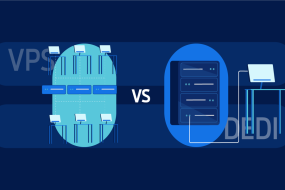
Welcome to the realm of VPS hosting security, where safeguarding your digital fortress is paramount. In a landscape fraught with cyber threats, understanding the security measures in place for your VPS server is crucial. Let’s embark on a journey through the intricacies of VPS security, unraveling the layers that shield your server from potential vulnerabilities.
Unveiling the Shield: Security Measures for VPS Servers
Firewalls: Fortifying Your Perimeter
Firewalls act as the first line of defense, monitoring and controlling incoming and outgoing network traffic. A robust firewall ensures that only authorized connections are permitted, mitigating the risk of unauthorized access.
SSL Encryption: Safeguarding Data in Transit
Secure Socket Layer (SSL) encryption adds an extra layer of protection by encrypting data transmitted between your server and users. This cryptographic shield thwarts potential eavesdroppers, ensuring the confidentiality and integrity of sensitive information.
Regular Software Updates: Patching the Weak Spots
Keeping your server’s software up-to-date is akin to patching potential vulnerabilities. Regular updates address security flaws, enhancing the overall resilience of your VPS against evolving threats.
Intrusion Detection Systems (IDS): Vigilant Watchdogs
An IDS monitors network and system activities, promptly identifying and responding to suspicious behavior. This proactive approach helps detect and mitigate security incidents before they escalate.
Two-Factor Authentication (2FA): Adding an Extra Layer of Access Control
Implementing 2FA ensures that even if login credentials are compromised, an additional authentication step acts as a barrier, thwarting unauthorized access attempts.
Backups: A Safety Net for Your Data
Regular backups serve as a safety net, allowing you to restore your server to a previous state in case of data loss or a security breach. Automated backup solutions streamline this crucial aspect of server security.
User Access Controls: Restricting Privileges
Granting users the minimum necessary access privileges minimizes the potential impact of a security breach. Strict user access controls ensure that each user has the privileges required for their role, reducing the attack surface.
Security Audits: A Proactive Approach
Regular security audits assess your server’s vulnerability landscape. Identifying and addressing potential weaknesses before they are exploited is essential for maintaining a robust security posture.
Physical Security Measures: Guarding the Hardware
While VPS hosting operates in a virtual space, physical security measures at the data center level ensure the protection of the underlying hardware. This includes surveillance, access controls, and environmental safeguards.
Incident Response Plan: Ready for Action
Having a well-defined incident response plan ensures a swift and effective response to security incidents. This proactive approach minimizes downtime and potential damage in the event of a security breach.
Final Words
In the ever-evolving landscape of cybersecurity, fortifying your VPS server is not just a choice; it’s a necessity. As we navigate the intricate web of security measures, remember that a vigilant approach, regular audits, and proactive measures are the pillars of a resilient digital fortress. Secure your data, empower your online presence, and let your VPS server stand as an impregnable bastion in the vast digital landscape.
Commonly Asked Questions
Q1. How often should I update my server’s software for optimal security?
Regularly check for and install updates at least once a month. Critical security updates should be implemented as soon as they are available.
Q2. Is two-factor authentication necessary for all users on my VPS server?
While not mandatory, implementing 2FA for all users adds an extra layer of security. It is particularly recommended for users with administrative privileges.
Q3. What role does a firewall play in VPS security?
A firewall acts as a barrier between your server and the internet, controlling incoming and outgoing traffic to prevent unauthorized access and potential threats.
Q4. How does SSL encryption enhance VPS security?
SSL encryption secures the data transmitted between your server and users, preventing unauthorized interception and ensuring the privacy and integrity of the information.
Q5. What steps can I take to prepare for a security audit?
Before a security audit, ensure that your server software is up-to-date, perform regular backups, and review user access controls. This proactive preparation enhances the effectiveness of the audit.
Advertisement








